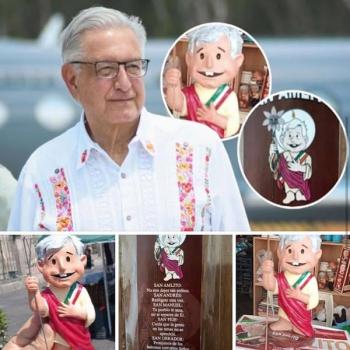Conviction and compassion go hand in hand, after all. "I think people are so weary looking for a leader, someone to follow, someone who will save them, and who can give them hope, that they are like sheep without a shepherd. Jesus had compassion on those crowds, and we now offer the same solution. I am moved that I need a baptism of compassion," says Anglican pastor Toby Larson.
Finally, we need to be bolder about religious pluralism. The best tactic, if that's the right word, is a "third way," the way of faith-based reconciliation. It is why I am a board member of "Shoulder to Shoulder," an interfaith collaboration between Christians and Muslims. This is a tactic at the heart of the Abrahamic moral vision and points to "A Common Word," a groundbreaking document I am a signatory to, and practical ministry for the children of Abraham.
In the states of Tennessee and North Carolina, pastors have been joining together with leaders of the New Evangelical Partnership for the Common Good and Religions for Peace to help their congregations understand Islam and their Muslim neighbors. When a shooting occurred at a military base by a disturbed Muslim believer in Chattanooga, these pastors were ready to respond urging calm, as well as love and compassion. Muslim leaders responded by raising more than $20,000 to assist the families of those killed.
Twenty centuries ago, Judaism's sages posed the question: "Who is a hero?" In most literatures, a hero was someone who performs mighty deeds on the battlefield and defeats his enemy. But who really is a hero? It is the person who turns his enemy into a friend. The one who builds bridges of understanding and compassion. And loves the refugee and immigrant.




